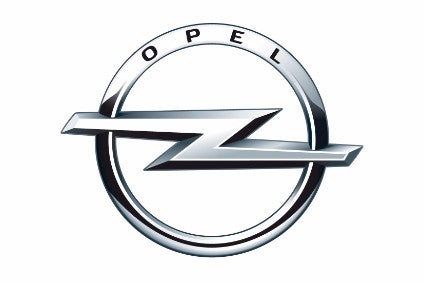PSA Peugeot Citroen has confirmed that it is in talks over the possible acquisition of General Motors’ European business unit that operates under the Opel and Vauxhall brand names. Why might GM want to offload and why might PSA be interested?
GM’s European operations have made a loss for many years and the financial position appears to have worsened on the back of currency movements that followed the Brexit referendum result in the summer. After shutting plants and axing the Chevrolet (the value brand that grew out of Daewoo products) brand from Europe, losses are still being incurred and that’s with the overall car market close to being recovered (and that took almost a decade).
GM may well be moving towards having, yet again, to re-evaluate the European manufacturing footprint to save cost. It’s potentially a painful position to be in; the bad guy who puts lots of people out of work. The media coverage is far from positive. Shuttering a plant would likely be a drawn out and tortuous process. On the other hand, selling the whole unit removes – at a stroke – the long-running headache from GM’s books.
Why would PSA be interested in taking over GM’s headache? Straight away, it boosts the company’s European market share (see table below, PSA potentially leapfrogs Renault to be the European car market’s number two group) and scale. Opel is one of Europe’s largest automakers. In 2016, the company sold approximately 1.2 million vehicles. There would be an immediate opportunity to make cost savings via joint procurement and bringing PSA and Opel’s parts purchasing departments closer together. PSA has long coveted the kinds of savings that arch-rival Renault has been able to reap through its alliance with Nissan. Parts procurement savings can flow quite quickly for some types of components. The momentum in PSA’s corporate strategy takes a dramatic new turn. Shorn of its conservative US parent, maybe there is an opportunity to take Opel global, set the brand scientists to work.
GM also has a considerable European engineering base. The engineering centre at Russelsheim plays a leading role in GM’s powertrain development work. The company has been investing in new dynamometers for engines and transmissions to allow for the development of next generation of powertrains for 2020 and beyond. Tighter European and global emissions regulations add to the value in this area.
There is an obvious issue though, an elephant in the room. The two carmakers in Europe make products in the same mass-market volume segments – they compete head-on. Both have been involved in plant closures (Aulnay for PSA, Bochum and Antwerp for GM) as a reaction to structural overcapacity, but it’s hard to avoid the conclusion that rationalising the plant-product mix to take out cost would have to be on the agenda for the future larger automotive entity.
Where might the axe fall? Would relatively high-cost German plants be vulnerable? It could be politically difficult to push in that direction. A more obvious weak point for GM’s European manufacturing operations is its UK plants. Exchange rate losses on trade flows between UK and Europe are one major difficulty facing UK operations. Major components such as engines and transmissions are imported to UK plants from the continent. UK market sales by Vauxhall are in now much cheaper pounds. Another worry is the ongoing uncertainty over future post-Brexit trade arrangements – possible tariff imposition and higher non-tariff trade costs applying when the UK leaves the European single market. Ellesmere Port has its work cut out to secure its status as lead plant for the next generation Astra. If it comes to it, put the blame on Brexit (‘Brexcuse’).
Such speculation is predicated on PSA following through to a purchase. Don’t bank on that. There were cautionary words from Paris today. Of course, there have been discussions and going public confirms a degree of substance. However, GM’s European operations have been in this position before. During the unfolding economic crisis of 2009 that saw GM go into Chapter 11, GM was involved in protracted discussions aimed at an Opel sale to a consortium led by Magna (after Fiat lost out in a two-horse race). Eventually, GM decided to hang on to Opel after it did some sums that showed it didn’t have to sell after all. And just how could it be a credible global player and give up its European operations to a rival?
There may well be frustration in Detroit that Europe is making troublesome losses again. When the European car market next turns down, the danger is that losses just get bigger. Multi-nationals and extended global reach are decidedly out of fashion right now in Washington. Pulling horns in and investing more in the US may be the way to go. And PSA may well be happy to sit at the big table and see just how serious GM is. The two companies have been working together and may eventually agree to extend that cooperation. However, a large and complex full sale and acquisition deal is very far from done.







